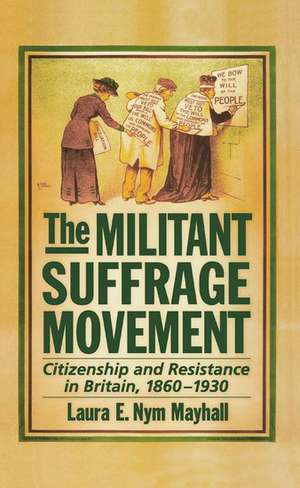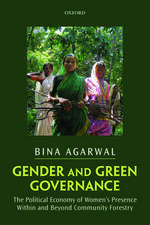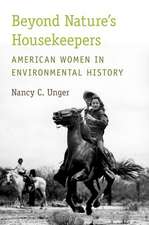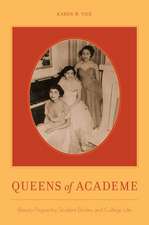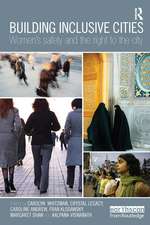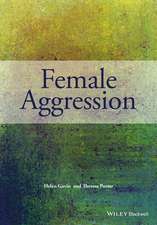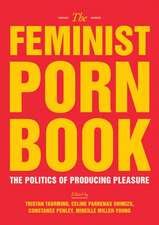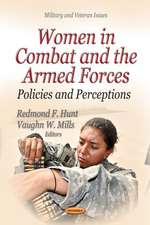The Militant Suffrage Movement: Citizenship and Resistance in Britain, 1860-1930
Autor Laura E. Nym Mayhallen Limba Engleză Paperback – 17 iul 2020
| Toate formatele și edițiile | Preț | Express |
|---|---|---|
| Paperback (1) | 176.37 lei 10-16 zile | +54.62 lei 4-10 zile |
| Oxford University Press – 17 iul 2020 | 176.37 lei 10-16 zile | +54.62 lei 4-10 zile |
| Hardback (1) | 672.32 lei 31-37 zile | |
| OUP OXFORD – 20 noi 2003 | 672.32 lei 31-37 zile |
Preț: 176.37 lei
Preț vechi: 216.16 lei
-18% Nou
Puncte Express: 265
Preț estimativ în valută:
33.78€ • 34.80$ • 28.30£
33.78€ • 34.80$ • 28.30£
Carte disponibilă
Livrare economică 23-29 ianuarie
Livrare express 17-23 ianuarie pentru 64.61 lei
Preluare comenzi: 021 569.72.76
Specificații
ISBN-13: 9780197531037
ISBN-10: 0197531032
Pagini: 240
Ilustrații: 20 halftones
Dimensiuni: 231 x 155 x 15 mm
Greutate: 0.39 kg
Editura: Oxford University Press
Colecția OUP USA
Locul publicării:New York, United States
ISBN-10: 0197531032
Pagini: 240
Ilustrații: 20 halftones
Dimensiuni: 231 x 155 x 15 mm
Greutate: 0.39 kg
Editura: Oxford University Press
Colecția OUP USA
Locul publicării:New York, United States
Recenzii
In this splendid book, Laure Nym Mayhall redefines suffrage militancy and explores it perceptively as a complex and sophisticated political idea involving a wide range of organizations, strategies, and practices. A singular achievement. Mayhall has done the history of women in Britain and the wider history of British political culture a great service.
Laura Nym Mayhall's account is one of a number of feminist reassessments of the militant suffrage campaign, and one that seeks to reclaim militancy as a serious political tactic against the onslaughts of less sympathetic writers who have dismissed it as a manifestation of female hysteria. Nym Mayhall's work reminds us of the diversity of militancy as well as its political dimensions and is a welcome contribution to the broader feminist project of reclaiming the WSPU as a political body.
Just when it seemed that this field had exhausted itself in terms of both evidence and paradigms, Mayhall's book recaptures suffrage history not just for politics, but for Victorian and Edwardian history broadly conceived.
Here is a stimulating book which explores the lineage of the militant suffrage movement, crucially integrating it into the wider development of modern British political culture. From the very first page we are encouraged to interrogate and so reconfigure the contours and meanings of suffrage militancy.
Historians of women and gender are radically transforming how we think about the complex ways in which claims to citizenship can be raised and nowhere more clearly than in studies of the early twentieth-century struggles over the franchise. Laura Mayhall's splendid book brings largeness of vision, impressive breadth, and precision to this task. It challenges British historians to pay attention.
Mayhall's work offers fresh and stimulating insights into this often puzzling phenomenon. She has a special ability to see beyond the frenzy of demonstrations and deputations and to recognize the historical process of 'fetishization' that has conflated militancy with violence. With this thoughtful study, Mayhall has moved suffrage militancy permanently off the shelf of odd curiosities.
In bringing to light the dynamism and range of practices of constitutional suffrage militancy before and during the Great War and its differences of opinion on fundamental questions, in illuminating the relationship suffragettes asserted between resistance and citizenship, and in contextualizing the militant suffrage movement within the British radical political and intellectual tradition, Mayhall has done the history of women in Britain and the wider history of British political culture a great service.
Laura Mayhall's important work provides a quite new understanding of the phenomenon of militancy
Laura Nym Mayhall's account is one of a number of feminist reassessments of the militant suffrage campaign, and one that seeks to reclaim militancy as a serious political tactic against the onslaughts of less sympathetic writers who have dismissed it as a manifestation of female hysteria. Nym Mayhall's work reminds us of the diversity of militancy as well as its political dimensions and is a welcome contribution to the broader feminist project of reclaiming the WSPU as a political body.
Just when it seemed that this field had exhausted itself in terms of both evidence and paradigms, Mayhall's book recaptures suffrage history not just for politics, but for Victorian and Edwardian history broadly conceived.
Here is a stimulating book which explores the lineage of the militant suffrage movement, crucially integrating it into the wider development of modern British political culture. From the very first page we are encouraged to interrogate and so reconfigure the contours and meanings of suffrage militancy.
Historians of women and gender are radically transforming how we think about the complex ways in which claims to citizenship can be raised and nowhere more clearly than in studies of the early twentieth-century struggles over the franchise. Laura Mayhall's splendid book brings largeness of vision, impressive breadth, and precision to this task. It challenges British historians to pay attention.
Mayhall's work offers fresh and stimulating insights into this often puzzling phenomenon. She has a special ability to see beyond the frenzy of demonstrations and deputations and to recognize the historical process of 'fetishization' that has conflated militancy with violence. With this thoughtful study, Mayhall has moved suffrage militancy permanently off the shelf of odd curiosities.
In bringing to light the dynamism and range of practices of constitutional suffrage militancy before and during the Great War and its differences of opinion on fundamental questions, in illuminating the relationship suffragettes asserted between resistance and citizenship, and in contextualizing the militant suffrage movement within the British radical political and intellectual tradition, Mayhall has done the history of women in Britain and the wider history of British political culture a great service.
Laura Mayhall's important work provides a quite new understanding of the phenomenon of militancy
Notă biografică
Laura E. Nym Mayhall teaches in the Department of History at the Catholic University of America. She is the co-editor of Women's Suffrage in the British Empire: Citizenship, Nation and Race.
